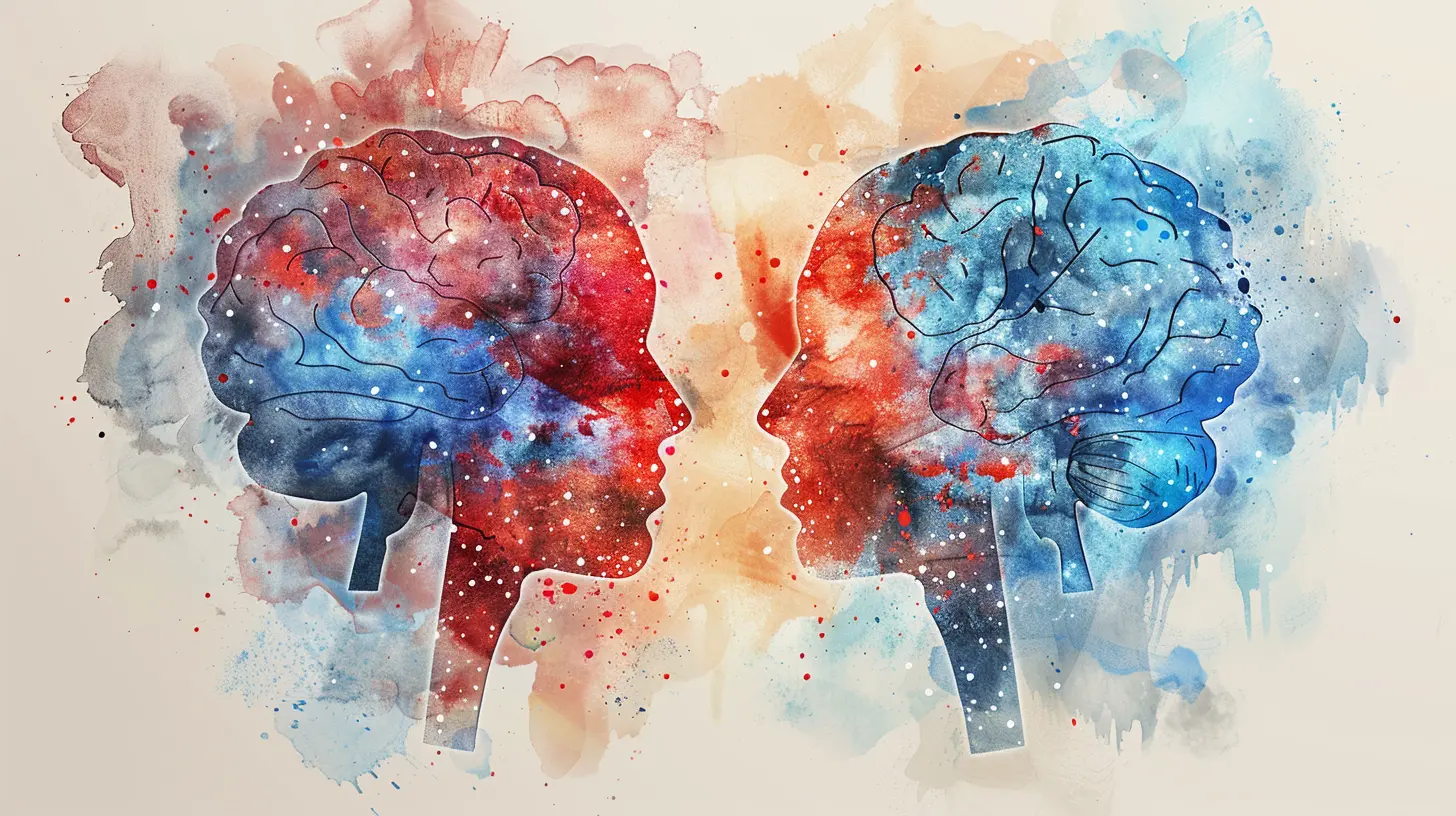The Impact of Cognitive Behavioral Therapy on Emotional Intelligence
17 June 2025
Cognitive Behavioral Therapy (CBT) has long been praised for its effectiveness in treating anxiety, depression, and a range of other mental health issues. But did you know it can also have a profound impact on emotional intelligence (EI)?
Emotional intelligence—the ability to recognize, understand, and manage emotions—affects everything from relationships to decision-making. And guess what? CBT can help enhance it. How? Well, let’s dive into it.

Understanding Cognitive Behavioral Therapy
Before we connect the dots between CBT and emotional intelligence, let’s get a quick refresher on what CBT actually is.CBT is a structured, goal-oriented type of psychotherapy that focuses on recognizing and changing negative thought patterns and behaviors. The premise is simple: what we think affects how we feel and behave. By identifying negative thought cycles and replacing them with healthier ones, we can change our emotional state and reactions.
Sounds pretty powerful, right? That’s because it is!

What Is Emotional Intelligence?
Now, let’s talk about emotional intelligence. You’ve probably heard the term thrown around, but what does it really mean?Emotional intelligence consists of five core elements, according to psychologist Daniel Goleman:
1. Self-awareness – Recognizing our own emotions
2. Self-regulation – Managing our emotions effectively
3. Motivation – Using emotions to achieve goals
4. Empathy – Understanding and relating to others’ emotions
5. Social skills – Navigating relationships effectively
In a nutshell, emotional intelligence is the secret sauce that helps us handle life's ups and downs without losing our cool. But here’s the catch—not everyone is naturally gifted in this area. That’s where CBT comes in.

How CBT Enhances Emotional Intelligence
1. Improving Self-Awareness
One of the first things CBT teaches is how to recognize negative thought patterns. This directly improves self-awareness—one of the core components of emotional intelligence.For example, if you're constantly feeling anxious in social settings, CBT helps you identify the thoughts behind that anxiety. Maybe you’re telling yourself, “Everyone thinks I’m awkward.” By challenging and reframing that thought, you gain a deeper understanding of how your mind works, making it easier to regulate emotions.
2. Developing Better Self-Regulation
Ever found yourself reacting impulsively to a situation, only to regret it later? Yeah, we’ve all been there. The good news is CBT can help with that too.Since CBT focuses on altering thought patterns, it naturally improves emotional self-regulation. When we learn to pause and assess our thoughts before reacting, we gain better control over our emotions. Over time, this helps us stay calm and composed, even in stressful situations.
3. Boosting Motivation
Motivation is more than just setting goals—it’s about maintaining drive even when things get tough. CBT helps in this area by shifting negative self-talk into positive affirmations.For instance, instead of thinking, “I’ll never succeed,” CBT encourages thoughts like, “I’ve overcome challenges before; I can do this.” This shift in perspective can make a big difference in your motivation and overall emotional well-being.
4. Enhancing Empathy
Believe it or not, CBT can also improve how we relate to others. Since it teaches individuals to analyze their own thoughts and emotions, it naturally increases their ability to recognize patterns in others.Through CBT, individuals become less judgmental and more curious about why people act the way they do. This fosters greater empathy, which is crucial for building meaningful relationships.
5. Strengthening Social Skills
Social interactions can be tricky, but CBT can significantly improve how we navigate them. By helping individuals manage anxiety, challenge insecurities, and develop healthier communication habits, CBT makes socializing easier.For example, someone who struggles with confrontation might, through CBT, learn techniques to express their feelings assertively rather than aggressively. This leads to more productive and meaningful interactions.

Real-Life Applications of CBT for Emotional Intelligence
So, how does this all translate into everyday life? Let’s look at some examples.Situation 1: Handling Workplace Stress
You receive constructive criticism from your boss. Your immediate reaction? Anger and defensiveness. But thanks to CBT, you pause, evaluate your thoughts (“They hate my work”), and reframe them (“This feedback will help me improve”). Instead of reacting negatively, you respond with openness and professionalism.Situation 2: Strengthening Personal Relationships
A friend cancels plans last minute. Instead of assuming they don’t care about you, CBT helps you consider alternative explanations. Maybe they had a rough day. This prevents unnecessary conflict and strengthens your relationship.Situation 3: Overcoming Social Anxiety
You’re at a party and feel like everyone is judging you. A CBT-trained mind challenges this thought: “Are they really thinking about me, or am I just projecting my insecurities?” You relax and start enjoying the moment.Why CBT Is a Game-Changer for Emotional Intelligence
The beauty of CBT is that it’s practical. Unlike vague advice like "just be more positive," CBT provides clear techniques that can be applied in real time.- It teaches awareness of thoughts and emotions
- It offers actionable ways to change destructive patterns
- It builds resilience and emotional strength over time
When emotional intelligence is enhanced through CBT, everything from career growth to personal relationships improves. You handle stress better, communicate more effectively, and lead a more balanced, emotionally rich life.
Final Thoughts
If improving emotional intelligence is something you aspire to, CBT is an incredible tool to get you there. It’s not a magic fix, but with consistent practice, it can rewire how you perceive and process emotions—leading to a healthier, more emotionally intelligent version of yourself.So, whether you're struggling with emotional control, social interactions, or self-awareness, CBT offers a structured way to turn weak points into strengths. And who wouldn’t want that?
all images in this post were generated using AI tools
Category:
Cognitive Behavioral TherapyAuthor:

Matilda Whitley
Discussion
rate this article
2 comments
Juno Powell
Embrace the journey of growth! CBT can boost your emotional intelligence, making life brighter and relationships richer. You've got this!
September 24, 2025 at 4:34 PM

Matilda Whitley
Thank you for your encouragement! I'm glad to see others recognizing the positive impact of CBT on emotional intelligence. It's a transformative journey!
Corinne Middleton
This article beautifully highlights the synergy between cognitive behavioral therapy and emotional intelligence. Embracing these tools can lead to profound personal growth and healthier relationships!
June 22, 2025 at 3:54 PM

Matilda Whitley
Thank you for your thoughtful comment! I’m glad you found the connection between CBT and emotional intelligence valuable for personal growth and relationships.


